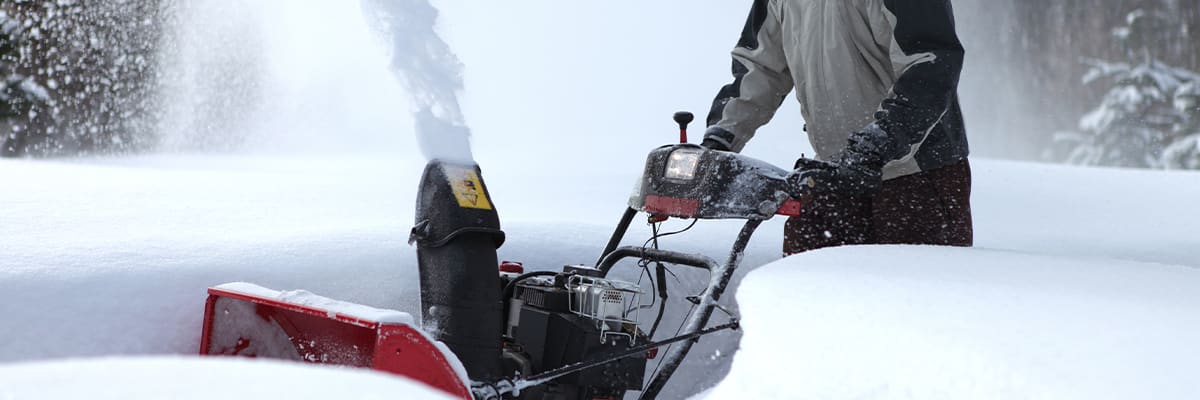
Return navigate_next
The Pros and Cons of Electric vs Gas Snow Blowers
October 17, 2021 *
Shoveling by hand takes a lot of effort and means spending more time outside in the cold. Most people would prefer to make short work of clearing snow. That way, they have more time to enjoy their favorite hot beverages and watch the snow through their windows.
Snow blowers make the task of clearing driveways and sidewalks a lot easier. When it comes to the choice of electric vs gas snow blowers, either type comes with some advantages and a few drawbacks. The best choice may depend upon experience with these machines, the area to clear, and personal preferences.
Choose Gas Snow Blowers for Larger and Tougher Jobs
Consider a gas snowblower for large areas that require venturing several yards from the house. For one thing, an electric lawnmower will need a very long extension cord to travel to the end of a long driveway.
According to Snow Blowers Direct, powerful gas engines will also prove more effective against deeper and heavier snow. Even though gas snow blowers may weigh more, they’re generally easier to navigate because they’re often self-propelled and might even include power steering.

Also, compare maximum specs for gas vs. electric snow blowers:
- Gas-powered models offer maximum clearing widths of 45 inches and depths of 23.5 inches.
- Compare that to the maximum width of 24 inches and depth of 12 inches offered by electric snow blowers.
Obviously, a gas snowblower can make shorter work of a big job than an electric model can.
Electric snow blowers do offer some significant advantages. They don’t require gasoline or spark plug, filter, or oil changes. To maintain electric snow blowers, just wipe them off periodically. Lighter weights and smaller sizes also make electric models easier to handle and store when not in use.
Some people prefer the simple button starters on electric mowers, but some gas mowers now come with electric starters too. Also, most people find pull-starters on new gas mowers much easier to use than the ones on older models.

What About Battery-Powered Snow Blowers?
People who live in areas with moderate snow falls might think a new snow blower with a rechargeable battery will offer a solution to their main objection to corded models. Consumer Reports said that their organization never suggested cordless models in the past because they could not find any worthwhile suggestions.
The CR reviewers have changed their attitude somewhat and recently published a list of cordless snow blowers that work well enough for recognition. The battery adds a little more weight to the machine, but it may satisfy people who don’t need to use them often or on very large areas. Like corded models, battery-powered snow blowers don’t require much maintenance.
Are Gas or Electric Snowblowers Better?
Some people find electric or battery-powered snow blowers easy to take care of, handle, and maintain. On the other hand, a gas-powered snowblower will make it easier to clear a large area of deep snow. Consumers should consider their own needs and select the type of snow blower that works best for their own unique situation.

What’s the Best Extended Warranty for Snow Blowers?
Many people keep their snowblowers for several years, but that doesn’t mean they never experience any problems. Some common issues include problems with the starter, leaks, and stuck wheels. If the snow blower won’t work, most people will have to turn to the tough and tedious task of shoveling by hand until they can find somebody to make repairs.
Consider these reasons to buy a warranty for a snow blower. Just one repair may cost at least $100. An Upsie protection plan for snowblowers can ensure quick access to expert repairs, and Upsie doesn’t even charge a deductible for covered snowblower services. Getting service from Upsie simply means contacting the 24-7 live claims line and choosing between one of Upsie’s certified local repair facilities.
It takes some time to choose between an electric or gas-powered snowblower. After that, make the quick and simple choice to register an Upsie extended warranty.
Learn More About Outdoor Tools:
* This article is over 6 months old and may or may not be updated.
